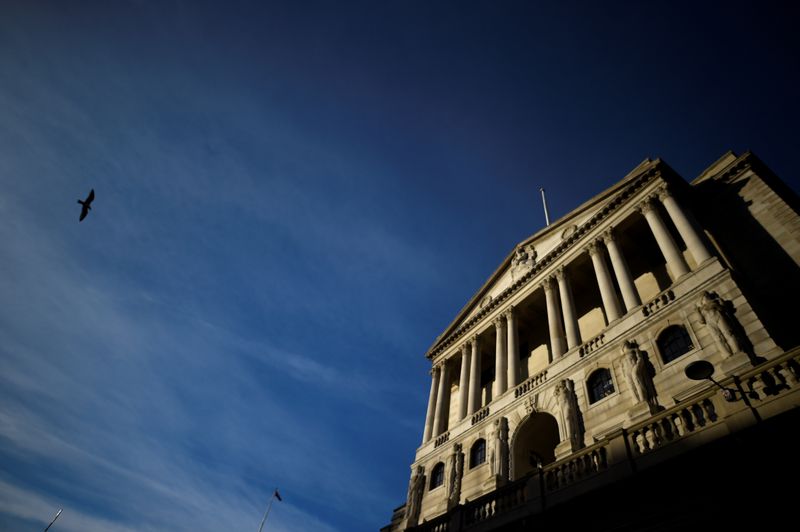By Andy Bruce
LONDON (Reuters) - Banks borrowed the largest amount of six-month sterling funds from the Bank of England on Tuesday since the run-up to the 2016 Brexit referendum, a sign of demand for cash as the coronavirus crisis hammers financial markets.
The BoE handed out 3.679 billion pounds in its weekly indexed long-term repo operation (ILTRO), the largest amount since it started holding weekly operations in March 2019, and the largest for any operation since March 2016, when they took place monthly.
Banks placed bids worth 4.369 billion pounds, the BoE said in a statement.
Similar operations to provide long-term funds were a key part of central banks' attempts to keep cash-strapped banks alive during the financial crisis of 2007-09.
Unlike a decade ago, Britain's banks have spent the last 10 years building up reserves of capital. Former BoE Governor Mark Carney said last week they were likely to be part of the solution to an economic crisis, rather than the cause.
More liquidity is also on the way, should banks need it.
The BoE was one of six central banks that on Sunday announced plans to hold weekly operations to provide long-term U.S. dollar funding to the financial system. The BoE is due to hold the first of those operations on Wednesday.
In Tuesday's ILTRO, the BoE said most of the bids, and funds allocated, were secured against the lowest-quality tier of collateral it accepts. The BoE provided the funds at an interest rate 17 basis points higher than its 0.25% benchmark rate.
Separately, an auction of 30-year British government bonds attracted solid demand, but the Debt Management Office (DMO) had to accept some bids from investors that were lower than normal -- to the greatest extent since November 2018, when Brexit turmoil threatened to collapse the government.
The DMO sold 2 billion pounds of the 1.75% conventional 2049 gilt
But the gilt sold with a yield tail of 1.8 basis points -- the difference between the yield on the lowest accepted bid and the average accepted bid -- which was the largest since an auction on Nov. 15 2018.
Ten-year gilt yields (GB10YT=RR) were up 7 basis points on the day at 0.51%, trading broadly in line with German government debt (DE10YT=RR), despite warnings from an official budget forecaster that Britain should not be "squeamish" about higher borrowing to fight the coronavirus.
